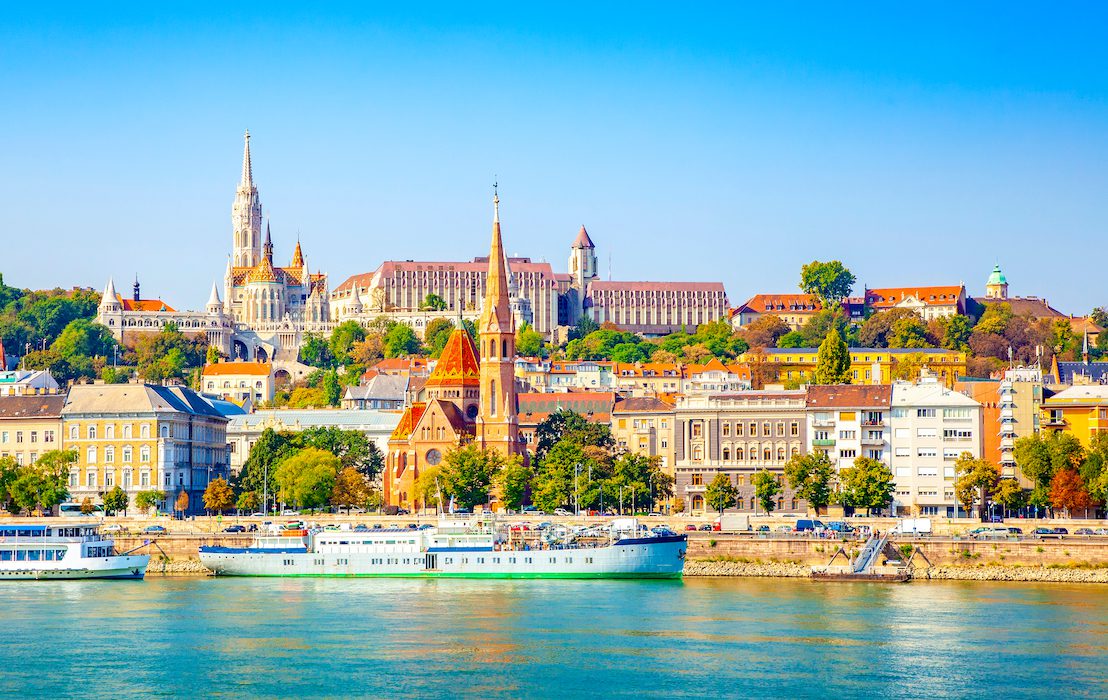Copyright The American Conservative

Loading the Elevenlabs Text to Speech AudioNative Player... The peoples of Central Europe have a habit of being indigestible to great continental empires. By the Gorbachev years, the Soviet Union had become exhausted by its restive European satellites, a feeling Habsburg rulers had known decades earlier—and that’s just the twentieth century. So it was inevitable that this region would prove a thorn in the side of the liberal superstate project headquartered in Brussels. The latest blow came last Thursday, when President Donald Trump and Hungarian Prime Minister Viktor Orbán confirmed the next U.S.–Russia “peace summit” will occur in Budapest. Orbán is reaping the fruits of the “considerable political capital [he put] into making Hungary a peacemaker in the conflict,” as Mason Letteau Stallings wrote in The American Conservative last week. It is an explicit rebuke to the European governing class that has clamored for a martial foreign policy it cannot support unaided, groveled before Trump when necessary, and attempted to silence Orbán at every step. To date, the European Commission has withheld from Hungary over €19 billion in investment and Covid-19 recovery funds over what European officials call concerns over “rule of law” and “judicial independence.” Though Hungary has experienced the superstate’s worst financial and diplomatic penalties, EU bodies have similarly punished Poland, prior to its 2023 change of government, and threatened Slovakia. Despite it all, Orbán remains generally popular among Hungarian voters—distasteful behavior from the longstanding opposition camp helps—and his reelection prospects next year are fair-to-promising, depending on whom you ask. The Hungarian leader has often been isolated on the European stage, but regional allies, particularly in the informal regional foursome known as the Visegrád Group (Czechia, Hungary, Poland, Slovakia), are increasingly emboldened to accompany him in European-liberal iconoclasm. When Slovakia and Poland held parliamentary elections almost simultaneously in 2023, the populist Robert Fico won his fourth term as prime minister in the former, while a coalition of liberals, leftists, and centrists ousted the ruling conservative government in the latter. To critics of Brussels-mandated liberal governance, it seemed an unfair trade. Refreshingly, though, Fico has been fearless on the European stage, especially after surviving an assassination attempt last year. To the chagrin of Brussels, he has fought for NGO funding transparency (particularly relevant in Slovakia) and national interests at the expense of the EU’s proxy-war activities against Russia. Recently, Fico cobbled together a parliamentary supermajority with some opposition support to amend the country’s constitution. The amendment recognizes only two sexes, bans surrogacy, bolsters parental education rights, and asserts primacy of Slovakian over European law on issues of “national identity.” The reaction from Brussels promises to be severe. Nevertheless, Fico has taken to social media in recent days to assert that a myopic focus on Ukraine is merely cover for the EU’s myriad policy failings. In Poland, where conservatives were left for dead just a year ago, prospects have brightened. Karol Nawrocki pulled off a minor upset when he edged liberal Warsaw Mayor Rafał Trzaskowski in this summer’s presidential race. His veto power will block any kind of activist legislation and frustrate liberal priorities. The new president enjoys a personal relationship with Trump and visited Washington both before and after the election. A public diplomatic competition with the supremely arrogant Minister of Foreign Affairs and Deputy Prime Minister Radosław Sikorski, husband of neoconservative luminary Anne Applebaum, highlighted the new realities in Warsaw. Then, in Czechia, the EU suffered another regional setback when populist Andrej Babiš earned a resounding victory in this month’s parliamentary elections, becoming the presumptive heir to the PM role he held previously from 2017–21. He is a close ally of Orbán and promises to contest European mandates on matters like migration and Ukraine war policy. This all represents a sharp reversal of fortunes for the Visegrád Group, which observers had completely discounted just recently. The alliance reached a high-water mark in the 2010s, particularly after Czechia, Hungary, and Slovakia rejected the EU’s 2015 migration mandate. Poles, incensed at their government’s duplicity on this issue, handed a sweeping victory to right-wing sovereigntists soon afterwards, and Poland joined the sovereignty rebellion. The 2022 invasion of Ukraine turned regional cooperation on its head, just after a liberal coalition replaced the Babiš government in Prague. Suddenly, Hungary and Poland, “two good friends,” as the well-known expression goes, were at loggerheads, with the latter nation taking a more hawkish view of Russia. After former President of the European Council Donald Tusk formed a government following the Polish parliamentary elections in 2023, regional cooperation reached arguably its lowest point since World War II. A diplomatic quarrel ensued when former Deputy Minister of Justice Marcin Romanowski, a member of the pre-2023 Polish government, received asylum in Budapest after he found himself in the crosshairs of the Tusk government’s political prosecutions. Foreign Minister Sikorski withdrew the Polish ambassador from Budapest and urged government officials to avoid the Hungarian ambassador in Warsaw. Since that time, Sikorski has frequently engaged in social-media spats with Orbán and other Hungarian government officials. Visegrád cooperation seemed both a tender memory and pipe dream—until recently. The speed of the latest, positive reversal in regional relations has come as a surprise. It cannot be complete, of course, while the Polish government (representing 60 percent of the region’s inhabitants) remains officially hostile to right populists. Nor will European institutions quietly capitulate. European governments and NGOs are certain to offer financial and logistical support to Hungarian opposition groups ahead of next year’s parliamentary elections. Various European governments have lobbied the Slovakian Constitutional Court to overturn the recent NGO-funding transparency law. The details of British Foreign Office funding of Slovakian liberals in the last election illuminate a small corner of the web of European political machinations. A report from the German Marshall Fund insists Czechia’s “EU ties” will ensure the new Babiš government will not take an “Orbán-style turn.” Former President Barack Obama posted a video featuring three newly minted Obama Foundation Scholars working to “strengthen democracy in Hungary and Poland.” Obama misrepresentations aside, assumptions are shifting on both sides of the Atlantic. The savvy American tourist already knows one tends to find beauty in Central Europe’s grand capitals and blight in Western Europe’s declining, migrant-burdened cities. That Paris is unromantic is no longer a contrarian opinion. Nor are Budapest, Kraków, and Prague “hidden” gems any longer—their architectural grandeur and rooted, local cultures are by now well known among Westerners. Central Europeans, of course, know all this too. The blackmail and threats from Brussels are losing their sting, especially with Washington no longer siding with the EU against its Euroskeptic member nations. Many Central Europeans have lived and worked in Western Europe or have family members who do. They have seen the willful degradation of those societies, and they will reject it as they did the previous century’s inhumane, deracinating ideologies. When Presidents Trump and Putin meet in Budapest, the focus will be on the war in Ukraine and the outcome uncertain. But to many, one conclusion pertaining to a broader civilizational issue will be inescapable: Westerners worried about the fate of Europe can look to the heart of the continent for hope.



